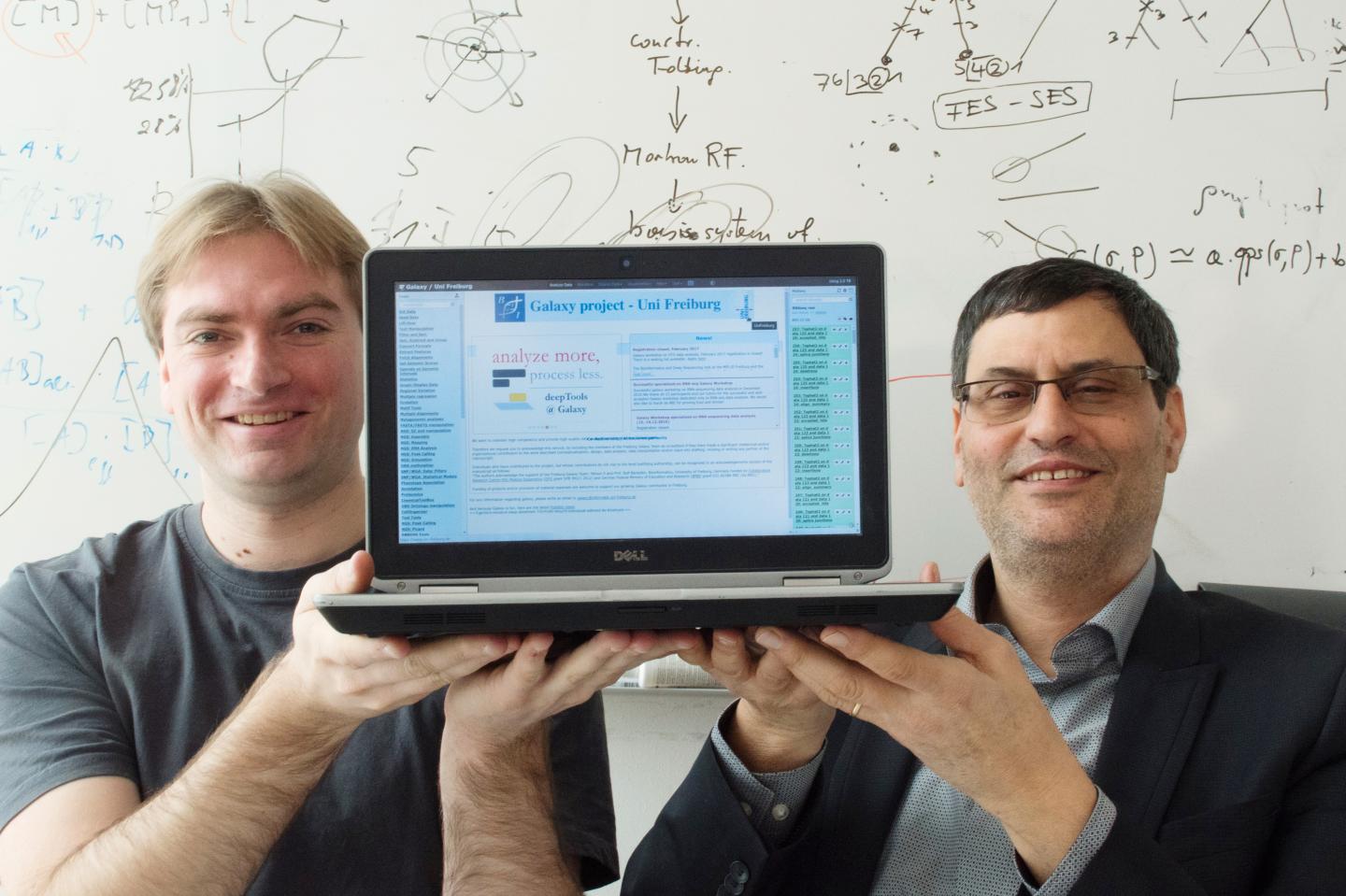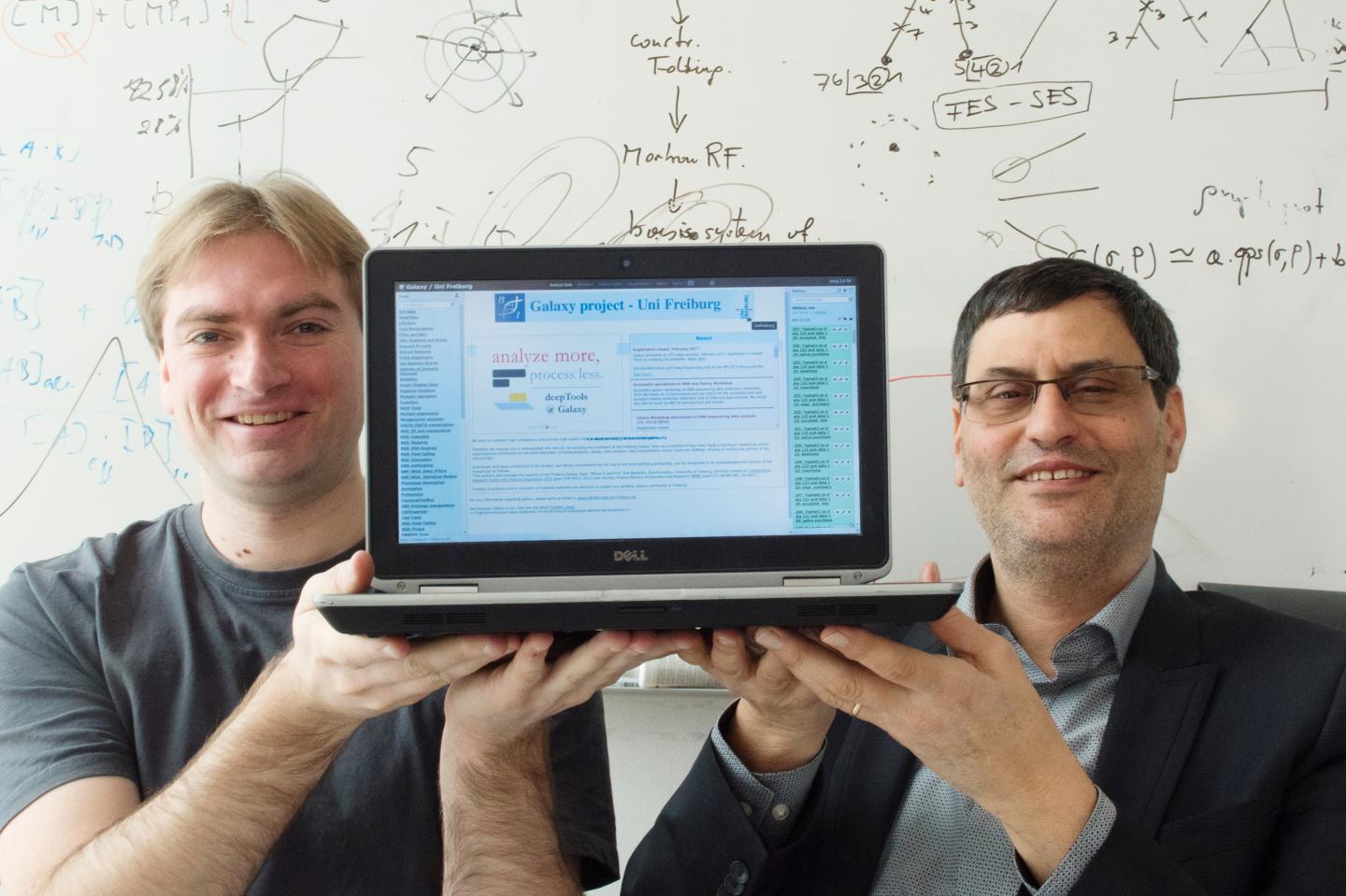
Credit: Photo: Patrick Seeger
The University of Freiburg has set up infrastructure and services to support researchers across Europe in the fields of biology, medicine, and pharmacy with the analysis of very large data sets. The team led by Rolf Backofen, Professor of Bioinformatics at the Faculty of Engineering, has been coordinating the High Performance Computing Center since 2015; the center receives sponsorship of some 5.8 million euros from the German Ministry of Education and Research and is now being expanded into a Europe-wide service. This places the group at the forefront of networks in Germany and across Europe. "The interests of our users are paramount," says Backofen. "It is our aim to enable them to use powerful computers with the help of a simple-to-use online platform, so that they can analyze their data independently." The team gives researchers access not only to the mainframe, they also provide advice and workshops – all free of charge and on an open-source basis.
At the University of Freiburg, the focus is on the Galaxy Project, which arose as part of the collaborative research center "Medical Epigenetics." It was originally an online platform developed at Penn State University in the US, giving researchers the use of high-performance computing for their work. "The researchers upload their data and can then apply various analysis tools to it, or combine them, alter the parameters, change the data into the necessary format, and much more – all on one platform," Backofen explains. The ease of use is a major plus: Instead of developing programs as is usual in informatics, users can adjust all the settings for data analysis easily via a graphic control panel in their web browser.
Current methods for examining cell functions, for example in genomic research, produce vast data sets. Bioinformatics provides the toolkit with which researchers can process this data. RNA bioinformatics is one imporant focus of this research in Freiburg. Research in recent years has shown that ribonucleic acid or RNA plays a bigger role than previously thought: Along with the task of translating genetic information into proteins, RNA participates in all the cell's key processes. The University of Freiburg's RNA Bioinformatics Center is one of eight such facilities in the German Network for Bioinformatics Infrastructure (de.NBI), which is sponsored by the German Education and Research Ministry. Backofen and his team are working with the University's IT center in the project: That is where the high-performance computer NEMO is; and it has received a special bioinformatics-oriented extension with recent funding.
Since August 2016 the German Network for Bioinformatics Infrastructure overall has become a hub for the European Network for Bioinformatics Infrastructure ELIXIR. Rolf Backofen is one of its leading coordinators. Now Freiburg researchers are able to provide their service across Europe.
Rolf Backofen is a member of the collaborative research centers "Medical Epigenetics" and "Development, function and potential of myeloid cells in the central nervous system" as well as an associated member of the Freiburg excellence cluster, BIOSS Center for Biological Signalling Studies.
###
Galaxy Project video http://www.pr.uni-freiburg.de/pm/surprisingscience/surprisingsciencenews/bioinformatik-galaxy
Further information
Galaxy Projekt at the University of Freiburg http://galaxy.uni-freiburg.de
High-performance computing center at the University of Freiburg http://www.hpc.uni-freiburg.de
Professorial chair of Bioinformatics http://www.bioinf.uni-freiburg.de
German Network for Bioinformatics Infrastructure http://www.denbi.de
European Bioinformatics Infrastructure ELIXIR http://www.elixir-europe.org
Media Contact
Rolf Backofen
[email protected]
49-761-203-7460
############
Story Source: Materials provided by Scienmag





